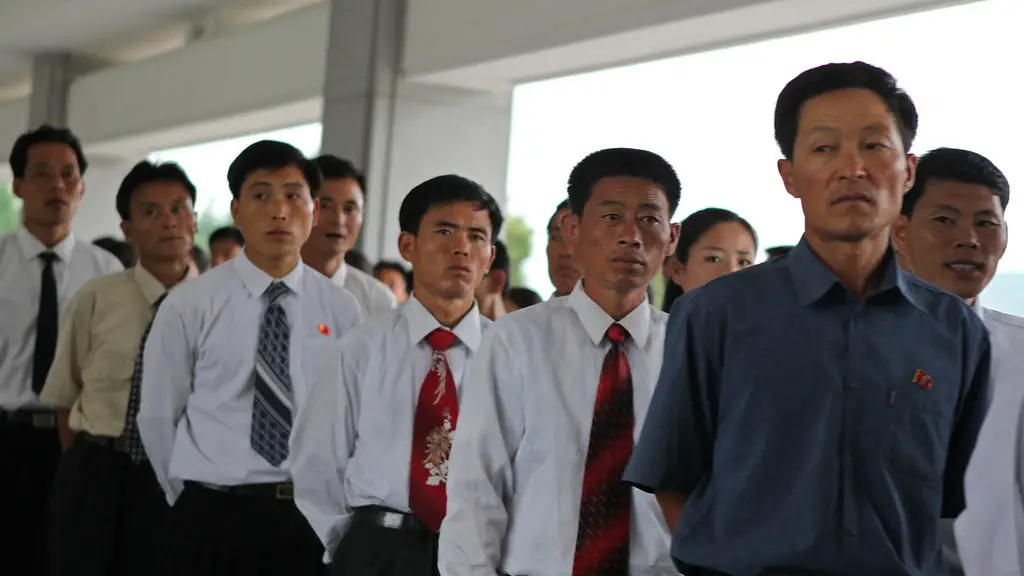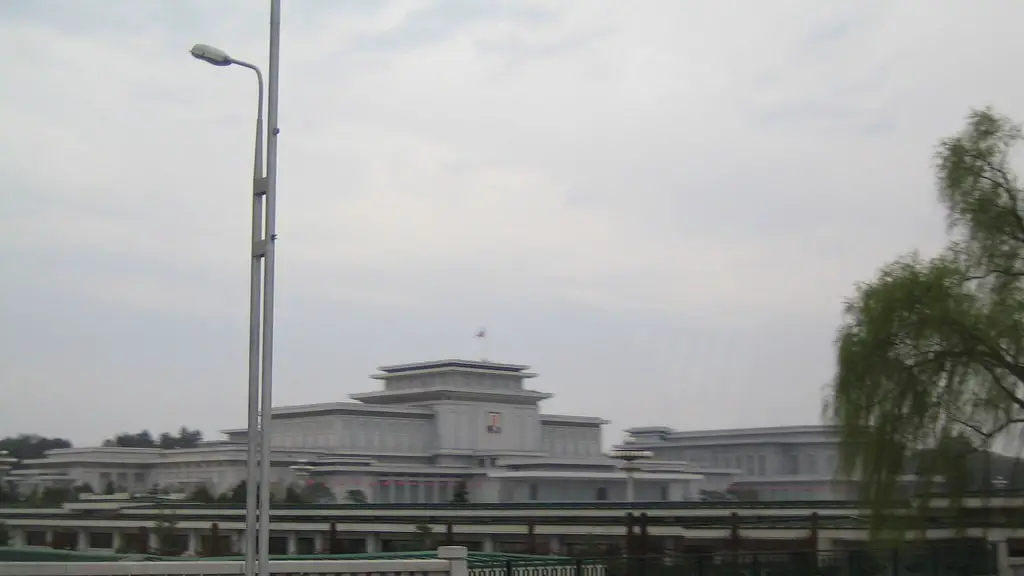What Things Are Not Allowed In North Korea
North Korea is one of the world’s most restrictive countries when it comes to the things its citizens are allowed to have, do and access. The country is ruled by an authoritarian regime that keeps tight control on what its people can and cannot do. This article looks into which things are prohibited within the hermit kingdom, including the restrictions and punishments imposed upon North Koreans who break the law.
Foreign travel is tightly restricted in North Korea and citizens are usually only allowed to go abroad with special permission. People need to pass a background check in order to receive a travel permit, and overseas trips are usually closely monitored. Without permission, North Koreans can face arrest if they try to leave the country.
The internet is strictly censored and highly regulated in North Korea. All websites and online activity must coincide with the government’s demands and with government-mandated ideologies. Social media and international websites are typically blocked, and internet access is limited to certain government-approved sites. Downloading or utilizing any unauthorized software can lead to severe punishment.
It is illegal to criticize or talk negatively about the North Korean leadership or the secretive regime. Freedom of speech and freedom of the press are not allowed in North Korea and any attempt to express any anti-government views can be punished with imprisonment, torture or even execution. The same applies to attempting to view defamatory information about the government.
North Korea has a closely monitored police state and almost all aspects of life are regulated. Gambling and bringing any foreign currency into the country is forbidden, as is possession of any foreign-made goods. Additionally, it is illegal to bring in any religious items or literature, or any materials deemed to be critical of the North Korean regime.
The North Korean regime also imposes strict limits on its citizens’ movements. People must register when they enter or leave a city or region, and are required to report any changes to their jobs or lifestyles to the government. Such restrictions are enforced by electronic scanners, roadblocks, and police checkpoints across the country.
The punishment for breaking any of these rules is usually severe. Visiting the wrong place or carrying prohibited materials can lead to fines, imprisonment, or even public execution. North Koreans are also liable to end up in a labor camp or prison if they are found to be in violation of the country’s laws.
Strict Cultural Norms
North Korean citizens also have to abide by harsh cultural norms. Women must adhere to patriarchal traditions where they are expected to provide full support and loyalty to their husbands, and to sacrifice their own ambitions for the benefit of their families. Men are held to a higher standard and are expected to respect and protect their women. Any failure to abide by these rules can be punishable by law.
The regime also requires its citizens to wear the “national uniform” – a white shirt and a matching pants or skirt. People are not allowed to dye their hair, and wearing certain Western hairstyles and clothes are seen as a form of disrespect for the government and is punishable by law. Even owning or wearing evidence of one’s faith – like a cross necklace – is prohibited and can lead to harsh punishment.
Teenagers and adults are required to participate in a weekly “loyalty pledge” to their leader and their country. All citizens are expected to display absolute obedience and respect to their government, and those who fail to do so risk imprisonment or even death.
Government Surveillance And Propaganda
North Korea’s government is highly oppressive and keeps a tight watch on its citizens. Special plans are made to ensure all aspects of people’s lives are monitored, and listening devices and cameras are installed in public places. Government agents, known as informants, keep an eye on citizens and report any suspicious activities or anti-government sentiments.
The regime heavily relies on propaganda to keep people in line and discourage any dissenting views. The government controls all media outlets and all news is subject to approval. TV, radio and print media are only used to spread government viewpoints and aims, and to discourage citizens from questioning the status quo.
Barrier Of Communication
Communication with people outside of North Korea is forbidden. Using a mobile phone to call or text anyone overseas, or being in contact with anybody living in the outside world without government approval is illegal. Using foreign online networks, email addresses or access to the international internet is forbidden and can lead to imprisonment and torture.
North Koreans are also forbidden from using foreign languages and must follow a specific dialect that is accepted by the regime. It is illegal to use foreign plates or nicknames, or to use any language that is not considered North Korean. As North Korea’s borders are closed to foreign visitors, most citizens never learn another language other than their own and many don’t even know that other languages exist.
Restrictions On Religion
North Korea is officially an atheist state and all forms of religion are strictly prohibited. Practicing any religion or reading religious texts is seen as a form of opposition to the government and is punishable by law. All religious buildings have either been destroyed or turned into museums, and any attempt to worship or to practice religious activities can lead to imprisonment or even execution.
The government takes great measures to eradicate any remaining traces of religion from its citizens, and religious symbols like crosses or hangings of saints are banned from public places. North Koreans who practice any form of religion risk being sent to labor camps and torture. In recent years, however, more North Koreans have begun to embrace religious practices despite the risks.
Economic Restrictions
North Korea places severe restrictions on the economy and its citizens’ rights to engage in any economic activity. Private markets are banned, and the government strictly controls the production and distribution of goods. The only currency accepted by the regime is the North Korean Won, and foreign currencies are not allowed. Even using foreign currency in North Korea can lead to arrest.
Citizens are prohibited from buying or selling foreign goods, and anyone found to be engaging in business with overseas companies may be subject to a lengthy prison sentence. The government also tightly regulates foreign investments and joint ventures with foreign companies, and foreign companies operating in North Korea are often liable for government surveillance and controls.
Restrictions On Entertainment
North Korea strictly restricts its citizens’ access to entertainment. Movies, TV shows and music outside the country are blocked and foreign music and films are banned. Music that promotes North Korean ideals is promoted, while music that hints at any criticism of the government is punishable by arrest.
North Koreans are also not allowed to watch television or listen to the radio from outside sources or have access to any foreign radio stations, and people have been arrested for possessing foreign DVDs or CDs. People who are caught breaking the law can be sent to labor or re-education camps for up to 10 years.
Conclusion
North Korea has a highly restrictive and oppressive regime which imposes severe punishments on its citizens for breaking the law. From strict control over the economy and media to the prohibition of any foreign languages and items, the North Korean regime is notorious for its restrictions on its citizens. North Koreans must take great care to obey the rules of the regime, lest they face harsh punishments or even death.





